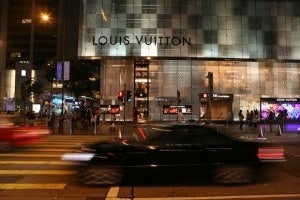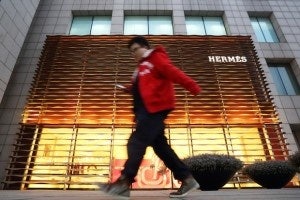In case you missed them the first time around, here are some of Jing Daily’s top posts for the week of May 20-24:
What Burberry Is Doing Right In China#
After initially issuing its September profit warning and then reporting a dramatic turnaround last month, Burberry is back in a big way with its recently reported 20 percent sales growth for the year ending March 31, as well as record-breaking profit numbers.

The company has several things going for it that have helped it in the China market, including targeted expansion, a solid digital strategy, and an apparel-heavy merchandise collection.
Mixed Signals: Deciphering The Conflicting Reports On Luxury In China#
One need only do a Google news search on “China luxury” to gain an appreciation for Whitman’s most famous line and how it applies to China. On a single page of results you will likely find stories about luxury sales in China reaching new heights, dire stories about the coming collapse of the China luxury market, luxury companies growing 30 percent in China and yet others shrinking by 25 percent. This is typical of the information gap corporations face when planning or re-setting their China strategies.

What’s Behind China’s Luxury Slowdown? Look To Several Factors#
There’s no denying that China’s luxury market as a whole is in slowdown mode. During the Chinese new year holiday period from January 20 to February 20 of this year, luxury spending on the mainland dropped to $830 million, a decrease of 53 percent from the previous year. China’s total luxury growth rate has declined from 30 percent last year to the single digit of 7 percent this year, and even some retailers in Europe are saying that they are seeing fewer Chinese tourists coming through their doors. These figures have led to a great deal of speculation regarding what exactly is hampering growth—namely, whether or not the root of luxury companies’ China problems is truly Xi Jinping’s anti-corruption campaign.

China’s Fashion Market In Transition: Winners Emerge As Competition Heats Up#
Amid the ongoing discussion on China’s luxury slowdown, many fashion brands are understandably concerned about what this means for their current and long-term potential in China.
The immediate effect of the slowdown has been to make the market more competitive and create winners and losers. To emerge as winners in this rapidly changing environment, it’s important for brands to understand the underlying trends that are shaping the market and redefining the traditional formula for success.

Beijing-Based Company Helps U.S. Schools Battle Application Fraud#
In response to a recent article in The New York Times on the growing trend of Chinese applicants to private U.S. high schools that more than hints at students buying their way in and contributes to the existing perception of high rates of application fraud, Jing Daily interviewed Chris Boehner, an insider in the Chinese outbound education industry with a unique perspective. Boehner is executive director and co-founder of Vericant, established in 2010 and offering one main service: locally conducted video interviews of Chinese applicants that help verify the authenticity of their application. Vericant’s clients are U.S. schools confronted with a growing number of Chinese applicants but unequipped with the local knowledge and resources to take the interview process a step further with a face-to-face meeting. Vericant was the first company of its kind when it was founded and now conducts thousands of video interviews a year, for $380 each, with a client roster dominated by boarding schools.

